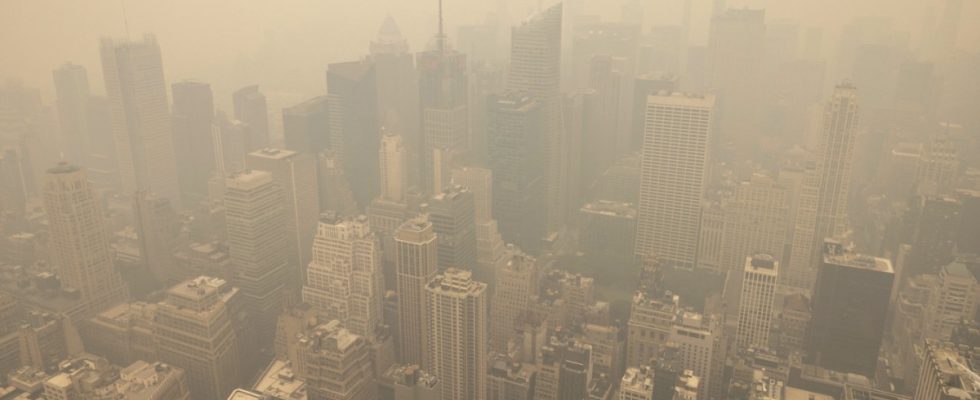For my first Climate Friday newsletter, I had actually planned something constructive, something positive in terms of climate. Then reality intervened.
There are ominous curves floating around on social networks: The surfaces of the oceans are currently heated more than they have ever been since measurements began, the air temperatures are also extreme and the sea ice areas around the poles are far too small for this time of year. Then there are the pictures from the apocalyptically yellow-colored New York and from the fallen mountain peak in Tyrol, which have certainly not only been burned into my climate memory in the past week. And not even in Sweden is the world still in order. This report by Alex Rühle shows how ruthlessly forest areas are cleared there and how the CO₂ balance is calculated nicely.
The agreement on the heating law is further delaying the heat transition
Meanwhile, the German climate protection law is probably being weakened – of all things by the Green Economics Minister Habeck – and the preliminary negotiations for the next world climate conference are going sluggishly at best. And the agreement on the heating law has calmed the coalition for the time being, but means that Germany is heating up the climate crisis for longer. Michael Bauchmüller and Nakissa Salvati have compiled the extent to which the agreement could affect you and what you should now consider.
After all: The heating compromise has brought municipal heat planning into focus. As long as it is not clear whether there will be a district heating, biogas or hydrogen network in a district, homeowners do not have to invest in more climate-friendly heating systems there. The municipalities have until 2028 for this planning – another delay in the heat transition. Although, just to remind you: You can also tackle things before you are forced to do so. My colleague Thomas Hummel was in Freiburg and Bruchsal, where heat planning has long been in the works. Two examples others can learn from.
Until next time, with hopefully better news.
(This text is from the weekly Newsletter climate friday you here for free can order.)

